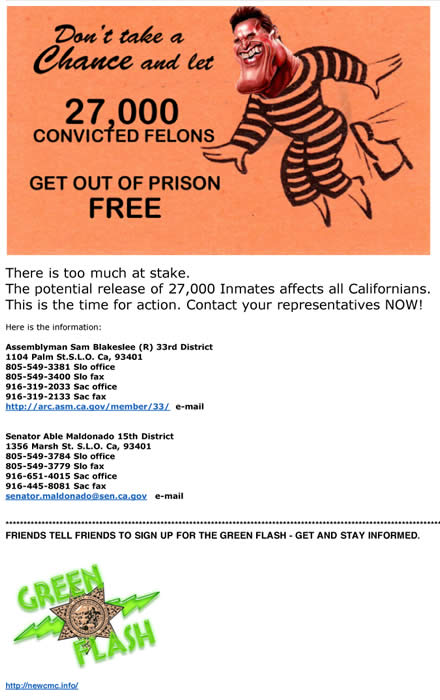Calif. informer strips away gang secrecyProsecutors say they hope Mendoza will shed light on the gang lifestyle, including the pressure on young members |
By Tracey Kaplan SAN JOSE, Calif. — John Mendoza was once a Norteño king, a shot caller in the notorious street gang who commanded such grim respect from San Francisco to San Jose that he could order someone killed with a single phone call. But today, Mendoza is known as a "rat" — the lowest form of scum in the gang world, who will never be safe on the streets again. To Santa Clara County prosecutors, Mendoza is an informer, a tour guide to the violent, inner world of teardrop tattoos, homeboys and "missions" overseen from afar by "generals" in Pelican Bay, the state's super-maximum-security prison. In a major gang trial in San Jose, Mendoza's testimony about the strange path — involving his dying wife — he took to becoming a snitch reveals much about the internecine world of Norteño and Sureño street and prison gangs. The stocky 40-year-old with black tattoos framing his bald skull sits in striking contrast to the usual professor or police officer experts who testify about gang culture. "I didn't have no intention of doing it (informing)," Mendoza told a spellbound jury. "What pushed me is I knew the NF (Nuestra Familia) had closed the door on me." In an attempt to play down Mendoza's testimony, defense attorneys pointed out that he never met the four men on trial on charges of murder, conspiracy or both, and knows little about their specific East Side street gang — El Hoyo Palmas. But Palmas are Norteños who are loosely overseen by Mendoza's prison gang, Nuestra Familia, with turf from Oregon to Bakersfield. Prosecutors say they hope Mendoza will shed light on the gang lifestyle, including the pressure on young members — like the ones on trial — to prove themselves by committing shocking acts of violence. "Being a little more sinister — it's something that's looked up to," Mendoza said. He said gangsters would brag: ‰'Did you see how I cracked his head or how I stuck him?' They want it to be more messy or worse than the next guy." Mendoza's explanations could help jurors understand why authorities allege that a hit squad of three — under the supervision of an older gang member — went on a four-month spree involving 11 shootings that left eight people wounded and four dead. It ended in early 2007 after a horrified San Jose police officer witnessed one of the killings. Prosecutors say the hit squad was directed by Gene "Shorte" Sanchez and included Samuel "Rico" Castro, Michael "Negro" Espana and Orlando "Gangster" Rojas, who was 17 at the time but is being prosecuted as an adult. In a gang at age 12 Not a single juror nodded off as he broke down the quasi-military structure of Nuestra Familia, including the three generals in Pelican Bay, a general council, a group of advisers and a pool of gang members divided into three ranks. And jurors didn't seem to buy defense attorneys' arguments that Mendoza had a strong motive to lie on the stand — that he was only testifying in hopes of lenience from his sentencing judge. Attorney Chuck Smith was critical of Mendoza's credibility as an expert. In a previous trial, Smith said, Mendoza testified that the phrase "Debbie and her dogs" was code for contraband when it turned out it was really about someone named Debbie and her dogs. Bad news list When he entered the Santa Clara County jail system — facing a possible 155 years to life with gang enhancements — he had achieved the rank of "overall authority" over all the Norteños in both county jails. He ordered beatings or worse on anyone on the gang's "bad news list." But he had one vulnerable spot: His wife was dying of lupus and he desperately wanted to be with her. So, in a misstep he knew might come back to haunt him, Mendoza soothed his wife by telling her he'd get out of jail by ratting out his gang. Those conversations were recorded by jail authorities and given to his co-defendants, who spread the deadly word that Mendoza was a snitch. The next time he came out of his cell for a shower, he said, inmates tipped over a cart carrying a portable phone, creating a loud crash to signal their fury. But despite pressure from law enforcement, he refused to "put on the brown shirt," the color of the jail jumpsuit worn by informers in protective custody. "My heart was still with NF," said Mendoza, who has "Nuestra Familia" tattooed on the back of his bald skull. Stripped of his rank, he could not win back the gang's trust. Sounding more like a displaced middle manager than a violent three-striker, he told the jury: "I understand how it works. We're all expendable." When Mendoza became a rat, he said it was only because he felt hunted, cornered and alone. "They put the youngest Norteño in there to spear (kill) me," he said. Even if Mendoza is ever released, he'll never be safe, said Bill Valentine, a former Nevada prison official and author of "The Gang Intelligence Manual." "In the NF, the only way you get out is you get killed," he said. "They'll track him to the ends of the earth." |
Monday, January 31, 2011
Subscribe to:
Post Comments (Atom)
Blog Archive
-
▼
2011
(17)
-
▼
January
(9)
- No title
- I'm always searching fo
- January 21, 2011 Re: Newton v. Schwarzenegge...
- January 21, 2011 Re: Newton v. Schwarzenegge...
- Drug-smuggling rampant at Corcoran State Prison
- Correctional Officers Attacked by Inmates at Pelic...
- RIP ROB, YOU WILL BE MISSED BY ALL OF US
- The Begining and the end
- SACARAMENTO, CA (CBS) - A California inmate is doi...
-
▼
January
(9)






























No comments:
Post a Comment